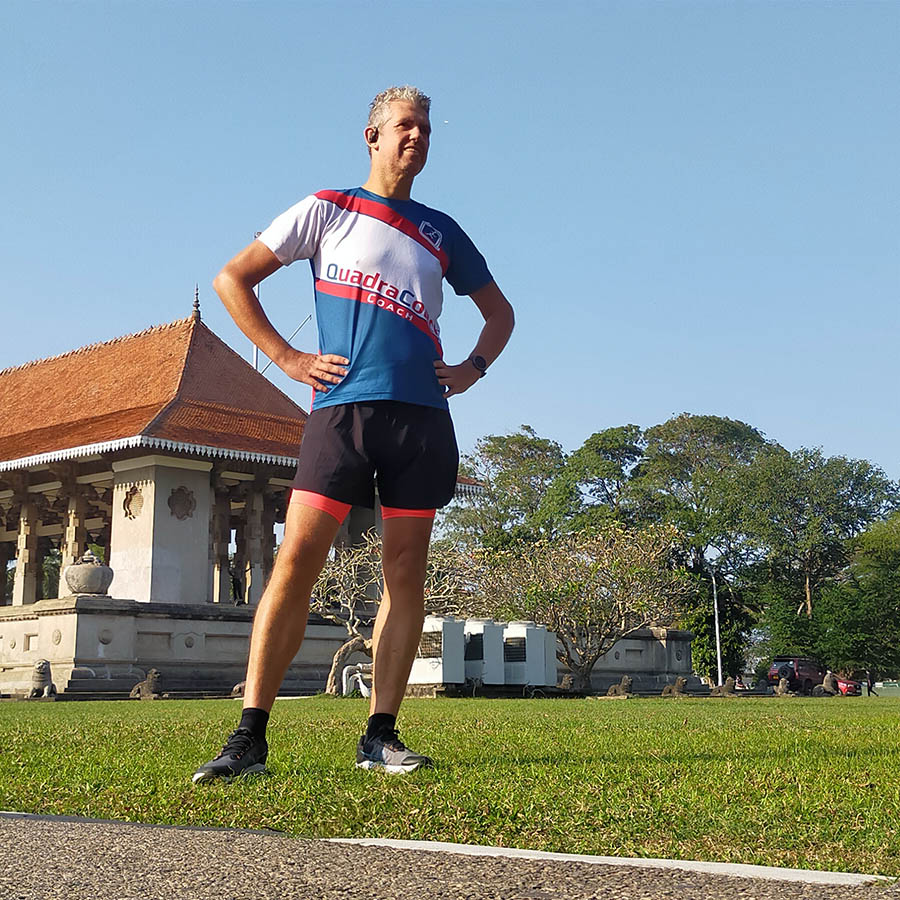When is the best time to run?
Every runner has his or her prefered time of day for running. Some like to run during the early morning hours, citing they are fresh and therefore able to run faster. Another group uses their break to go for a quick run as they are not too tired yet and it boosts their energy for the second part of the working day. Other prefer the evening, claiming it relaxes them and lets them forget the day's troubles.
About one aspect, most of them agree… it is by large a psychological thing and about how you perceive it mentally. If this is the case then it should not matter when you run, but when we look at the data from a diverse group of runners, we see that the majority runs faster in the evening or matches their morning runs with less effort. Why is this?
Circadian Rhythms
There are small fluctuations in the performance of bodily functions over a 24-hour period. This is a perfectly normal phenomenon. Practically every bodily function shows daily rhythmicity. This means that, at least in theory, you can improve your ability to do something by doing it at the right time of day.
We all have more than 100 different circadian rhythms, controlled by a biological clock (the suprachiasmatic nucleus) in the part of the brain called the hypothalamus. The exact mechanism is yet unknown to scientists, but we now that daylight, social contact and mealtimes are a factor.
For running it is important that many of the functions vital to performing well, all peak at the same time. One of the fluctuations is our body temperature. Studies have shown that the body temperature is at its lowest in the early morning and at its highest in the late afternoon. It is also proven that athletes perform better when their body temperature is higher (hence the warmup before sessions and races). Another study (by Dr. Boris Medarov of the Long Island Jewish Medical Center in New York) found that the lung capacity is 6 percent higher in the afternoon than at other times during the day.
So when is the best time of day to run?
Early Morning
All the bodily functions are at their worst this time of the day. The body temperature is low, lung function poor and your energy stores are depleted as the gap to your last nutritional intake is too big. On top of that, since your awareness is also lower, you are more prone to injuries. According to Professor of Biological Rhythms, James Waterhouse of the John Moores University, Liverpool, research shows that the early morning is the most common time of day for strokes and heart attacks.
Mid-Morning
This is the best time to do either weight training or hill sessions as this is the moment of the day the testosterone, the hormone most responsible for muscle-boosting is the highest. With an improved lung performance and higher body temperature compared to early mornings and a higher energy level after a protein and carb-filled breakfast, it is better to run, but still not as good as later on the day. An extra obstacle is that most of us will be working, therefore this might only be relevant to weekends or holidays.
Lunchtime
The most important body functions for performance take a dip again. This will bring the physical level only just a notch over the morning level and not ideal for running. The positive side is that if you have a longer lunch break, you can do some runs without giving up any free time and it makes you more productive in the afternoon.
Afternoon and Evening
This is absolutely the best moment for physical activities. This is the main reason why the majority of sporting events take place in the afternoon and evenings. As for marathons, they are in the morning purely for logistical reasons; extended time limit for runners to be able to finish, course cleanup and reopening of the roads for traffic before dark.
As stated before both the body temperature and lung capacity peak at this moment which makes the runs feels easier and more relaxed. The only drawbacks of evening-running are psychological. Finding the motivation to run after a day at work at a moment at which the mental functions are at its lowest. But this can be turned into a positive as it poses a challenge to overcome.
Conclusion
Running in the afternoon or evening is prefered over any other moment of the day as you can go further and faster without any more physical effort. On top of that, because of the mental challenge, you will inadvertently train the mental aspect of running too.
